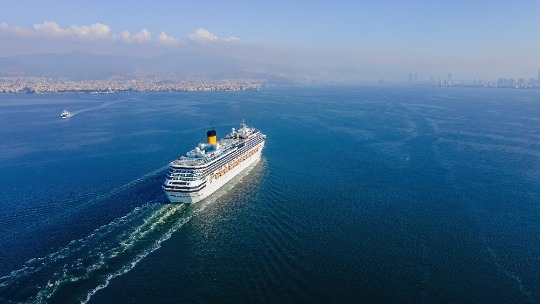Ron Hall and his wife, Lana Paras, love to travel. Since retiring from their government jobs in their 50s, the Mililani couple has traveled much of the world, often by cruise ship.
When Hall was diagnosed with kidney failure during the pandemic and put on dialysis, he thought their traveling days would be severely curtailed or ended altogether.
He had been diagnosed with kidney disease many years ago. With the help and advice of his primary care provider, Randall Suzuka, M.D., it was suggested that Hall enroll in the Aloha Kidney Care classes by Ramona Wong, M.D. Hall and Paras both enrolled and attended classes together, which provided them with invaluable information. The classes were extremely informative about overall health, kidney disease, dialysis treatment options, and what to expect from kidney dialysis.
“Last year, we found a way to travel using other clinics for dialysis,” says Paras. “It involves making arrangements with the clinics at your travel destination or, in the case of a cruise, with clinics at the various ports of call.”

The National Kidney Foundation recommends that people on dialysis first talk with their doctors about their travel plans. Once the go-ahead is given, arrangements can be made. Some local clinics can help make those dialysis arrangements, and send your medical records to your destination dialysis clinics. It’s very easy and convenient for the patient because it’s similar to regular scheduled dialysis treatments at home.
Last October, Hall and Paras went on a seven-day Pacific Coast cruise. “I gave the itinerary to Ron’s clinic. They found locations nearest to where the ship or hotel will be and made the arrangements,” Paras says. Some cruise lines also arrange ground transportation to and from the dialysis center.
And this March, they went on an 11-day East Coast, Bahamas, and Bermuda cruise. They’re heading out on a 15-day Mississippi River cruise in the next few weeks. Paras says, “Dialysis treatments will be provided at city ports throughout the cruise itinerary, but it’s really becoming just a routine part of a fulfilling adventurous retirement.”
An option for international cruising is Dialysis at Sea. It has some cruise lines scheduled year-round and provides Fresenius dialysis equipment, a nephrologist, and nurses on board. Cruises and dialysis treatments must be booked directly with Dialysis at Sea. The cost of the dialysis treatments isn’t covered by Medicare or Medicaid; however, some health insurance options might provide partial reimbursement for the dialysis treatment expense.
“It’s like anything else. You just change and adapt,” Paras says. “We just know that there’s dialysis for four hours, three days a week, but everything else is the same. We do what we want, and we go where we want.”
If you have questions about planning for dialysis during travel, email Hall.
FA24F




